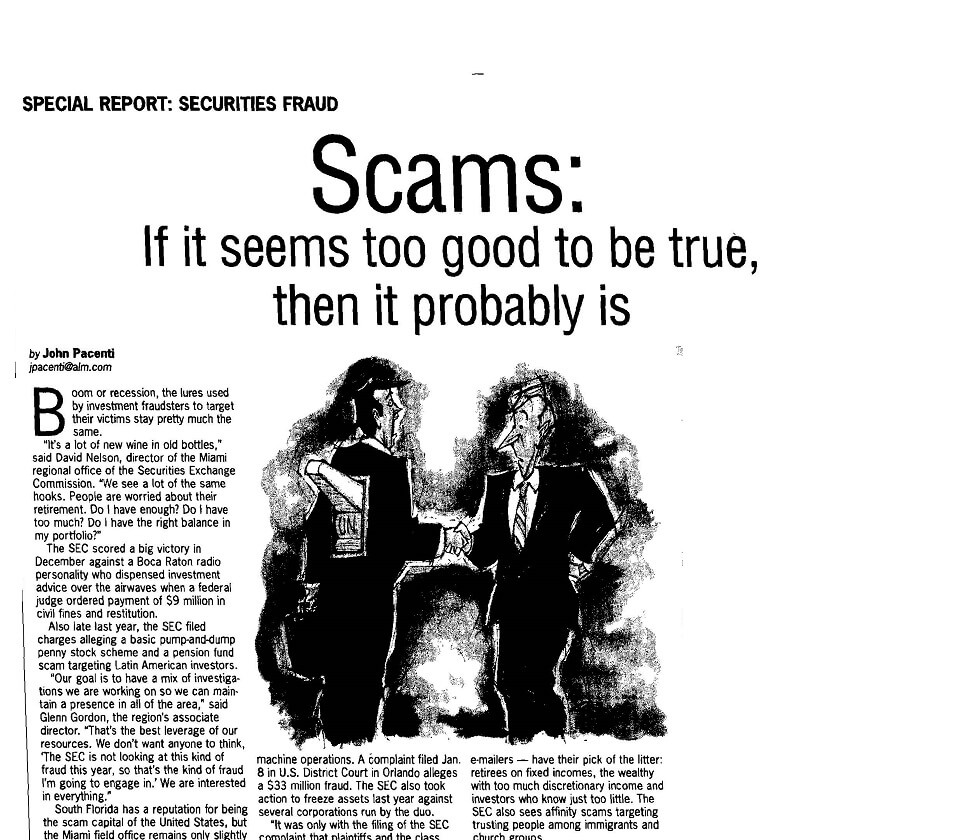As the 15th Anniversary approaches of one of the largest Ponzi schemes in history, masterminded by Bernie Madoff, there is new advice to investors on how to avoid falling victim to similar investment scams and schemes.
Representing Investors in the fight against investment fraud and stockbroker fraud, Securities fraud attorney Mark A. Tepper, the former Assistant Attorney General and Chief Trial Counsel at the Bureau of Investor Protection and Securities for the New York Attorney General, has developed a check list of “Red Flags” or potential warning signs for investors:
-
If it sounds too good to be true, it probably is;
-
The promise of high investment returns with little or no risk;
-
Recommendations of non-traded products. Unregistered investments including non-traded REITs and Limited Partnerships; Brokers receive higher than normal commissions for recommending non-traded illiquid products, like REITs and Limited Partnerships. There is no compelling reason why your broker should recommend these products for your account;
-
Difficulty receiving payments;
-
Guaranteed returns;
-
Difficult to understand statements;
-
Over concentration. When a broker recommends concentrating your account in only a few or one stock, it increases your risk and is probably unsuitable. Recently, Morgan Stanley was ordered in a FINRA arbitration to pay $1.8 million for its broker’s over-concentration of Wisdom Tree stock in a customer account;
-
Recommendation of leveraged ETFs and mutual funds that short the market (bet the market is going down) and holding these securities long term. These securities (leveraged and inverse ETFs and funds) are unlikely to be suitable for a retail investor and are designed to be held for a short time, mainly a few days;
-
Retail commissions and multiple trades. Most brokers no longer charge retail commissions. Many online firms like Schwab and Fidelity have no commissions. If your broker is charging a commission for each transaction, you may have a problem; and
-
Heavy losses in one stock even though your account is profitable overall.

